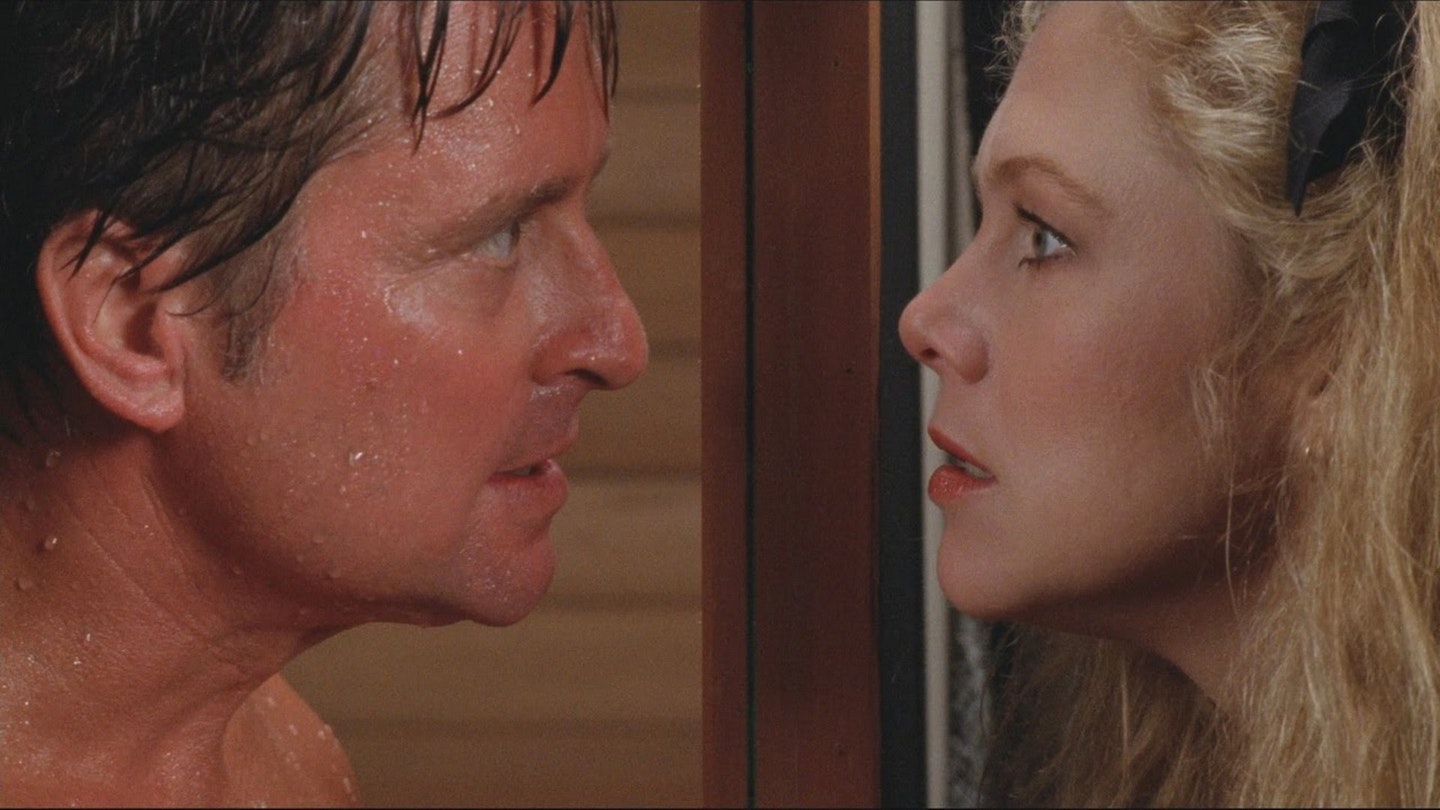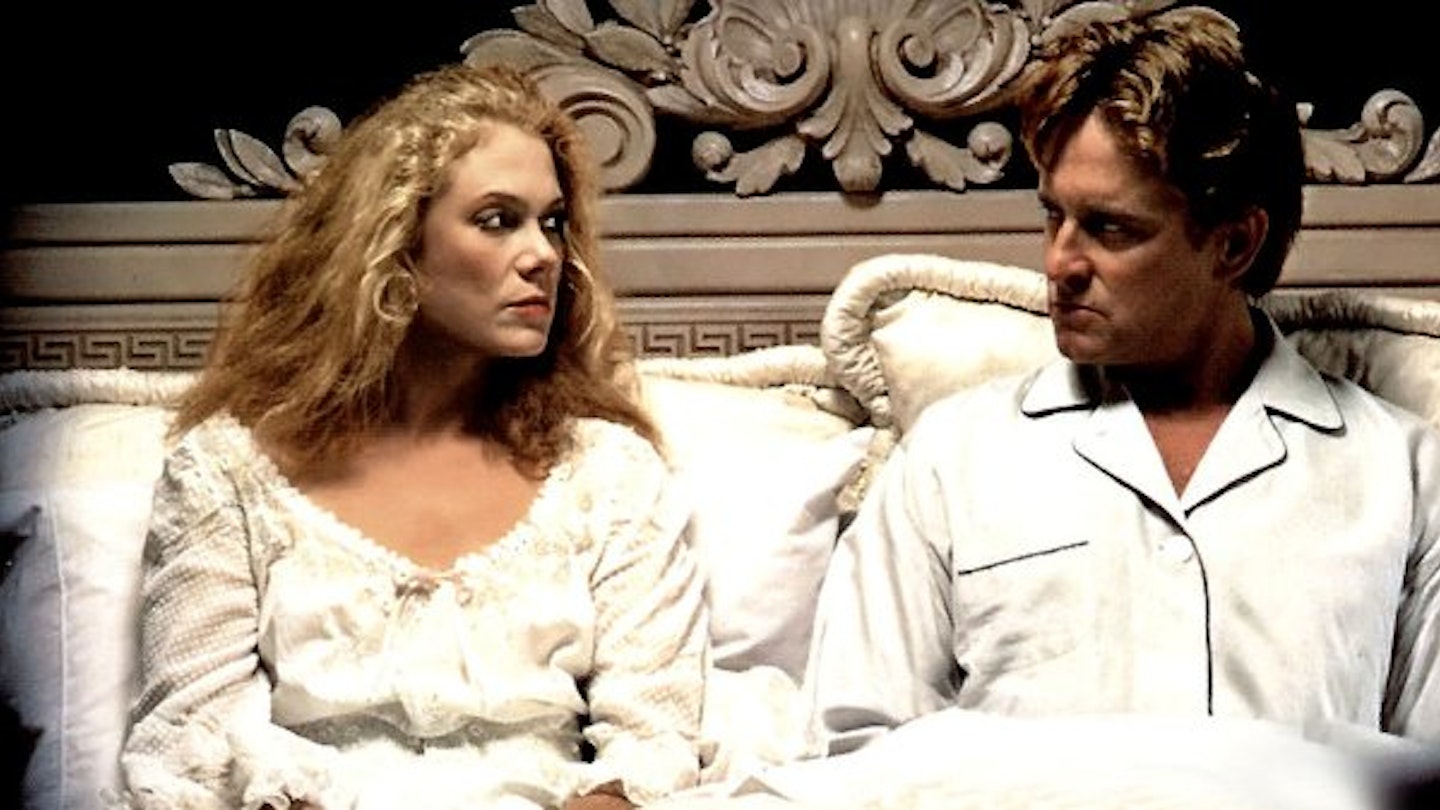Hollywood has traded off the Battle Of The Sexes since the 30s, but few, if any, movies have quite smashed the traditional boundaries of the convention in such an audacious way as The War Of The Roses. The verbal sparring of Tracy and Hepburn, say, pales into polite insignificance set next here to the mesmerising anger and bitterness of Barbara and Oliver Rose. Here, perfect passion transmutes into perfect destruction in a diabolical dance of death, orchestrated as hilarious and shocking comedy.Danny DeVitos second directorial venture is framed in a structural device which has lawyer Olivers former friend, partner and attorney (DeVito) telling the Roses story to a new client who is considering divorce. This narrative undercutting creates a superb sense of anticipation as the next gripping instalment unfolds in what develops into a wholly intriguing tale of modern morals.
The Roses are the Perfect Couple: following on their first idyllic encounter, at a Nantucket auction of objets dart during their student days, they married and produced two children (one boy, one girl, natch). While Barbara cleaned and cooked and sewed and acquired The Dream House, Oliver steadily climbed the ladder of professional success, becoming a status-mad workaholic and growing very, very rich. Now, 17 years on, Barbara, her own sense of worth destroyed by Olivers indifference, wants a divorce. He doesnt, and their wonderful home, which each stubbornly refuses to relinquish, became the battleground where the ensuing War is waged.
Working from a noticeably watertight and well-written screenplay by Michael Neeson (adapted from a novel by Warren Adler), DeVito delivers the blackest of black farces, charting the gradual disintegration of a relationship and demonstrating the violence verbal, emotional and physical - that people can do to each other when their needs and desires gradually cease to correspond. DeVitos taste for exaggerated gestures does create the occasional credibility gap, as in the scene where Oliver deliberately sabotages a grand dinner party given by Barbara, a farcical progression that is at once crude and unbelievable.
For most of its 111 minutes, however, the film follows a parallel path of subtlety and perception, signposting the danger signals over the years, signals which are ignored by the protagonists until they find themselves in the eye of the self-created storm. Douglas presents a welcome return to form after the disappointing Black Rain, DeVito is terrific and Kathleen Turner has never been better. The scene where she reveals her frustrations in a loss-of-control monologue to a prospective housekeeper (Sagebrecht) is pure magic.
One suspects that The War Of the Roses will be controversial (this years Fatal Attraction, anyone?), with audiences differing wildly on the treatment of the films main themes.

